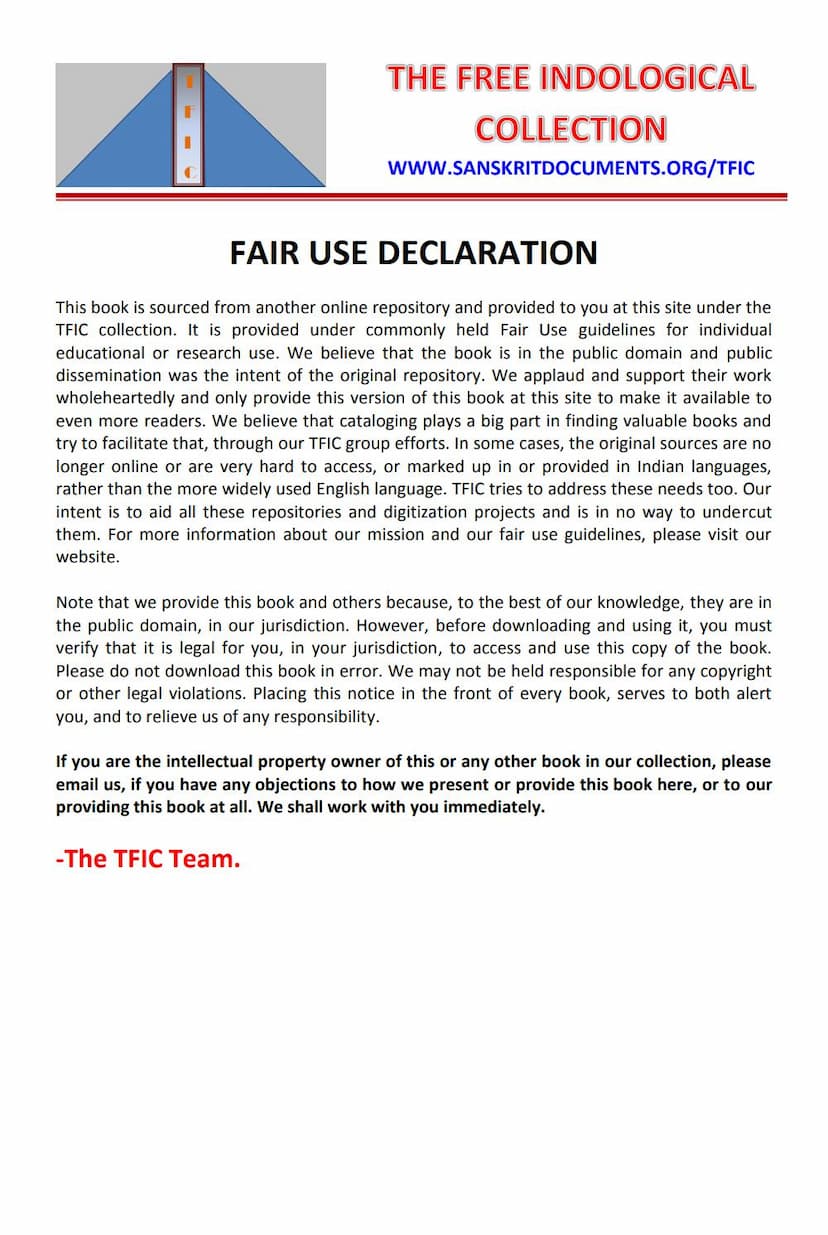Jain Mangal Gayan Sangraha Part 02
Added to library: September 2, 2025

Summary
This document is Volume 2 of "Jain Mangal Gayan Sangraha" (Collection of Auspicious Jain Chants), compiled by Jain Mangal Gyan Mandali, Mumbai. The book is a collection of devotional songs and hymns dedicated to various Tirthankaras (Jain spiritual leaders) and other revered figures in Jainism.
Here's a breakdown of its content and context:
Core Content:
- Devotional Hymns (Stavans): The primary content consists of a wide array of devotional songs, often referred to as "stavans" or "gayan" in Jain tradition. These are set to various traditional Indian musical meters and rhythms, indicated by terms like "rah," "dhum," "thumri," "kuhumri," etc.
- Praise of Tirthankaras: The hymns are dedicated to specific Tirthankaras, including:
- Chouvisi (Twenty-four Tirthankaras): The collection starts with a general praise of the Tirthankaras, particularly mentioning Mangal Chouvisi.
- Adishwar Dev: The first Tirthankara.
- Ajit Jineshwar: The second Tirthankara, with a detailed hymn describing his victory over the "Mehraaya" (likely representing inner enemies like passions).
- Sambhavnath Swami: The third Tirthankara.
- Abhinandan Jin: The fourth Tirthankara.
- Sumatinath Swami: The fifth Tirthankara.
- Padam Prabh Jinraj: The sixth Tirthankara.
- Suparshvanath: The seventh Tirthankara.
- Chandraprabh Swami: The eighth Tirthankara.
- Suvidhi Jagannath: The eleventh Tirthankara.
- Sheethal Jin: The tenth Tirthankara (though listed out of order, the page mentions "Dasham Jinraj").
- Shreyansh Jinraj: The eleventh Tirthankara (appears to be a slight discrepancy in numbering in the text).
- Vimal Jinesar: The thirteenth Tirthankara.
- Kunthunath Bhagwan: The seventeenth Tirthankara.
- Arh Dev: A general term for the liberated souls.
- Nem Jin: The twenty-third Tirthankara.
- Parshvanath: The twenty-third Tirthankara.
- Mahavir Jinesar: The twenty-fourth Tirthankara, with hymns focusing on his teachings and the righteousness of Jainism.
- Shanti Jin: The sixteenth Tirthankara.
- Anant Jinesar: The fourteenth Tirthankara.
- Shreyansh Jin: The eleventh Tirthankara.
- Padam Prabh: The sixth Tirthankara.
- Themes of Devotion: The hymns express deep devotion, surrender, longing for darshan (vision) of the Tirthankaras, and the desire for liberation from the cycle of birth and death (samsara). They often highlight the virtues of the Tirthankaras, such as their purity, knowledge, compassion, and their ability to guide devotees to spiritual emancipation.
- Philosophical Concepts: Some hymns touch upon Jain philosophical concepts like the separation of the soul from the body, the nature of karma, the importance of right faith, knowledge, and conduct (the Three Jewels), and the ultimate goal of moksha (liberation).
- Call to Righteous Living: Several hymns encourage virtuous living, emphasizing principles like truthfulness, non-violence (ahimsa), renunciation, and devotion.
- Composer: The hymns are often attributed to "Kavi Ravi," indicating that Ravi was a prolific composer of these devotional songs.
Publisher and Context:
- Publisher: Jain Mangal Gyan Mandali, Mumbai. This organization is dedicated to propagating Jain knowledge and literature.
- Fair Use Declaration: The beginning of the document includes a "Fair Use Declaration" from "The Free Indological Collection (TFIC) www.sanskritdocuments.org." This indicates that the book was sourced from another online repository and is being shared for individual educational or research use under fair use guidelines. It also mentions the intent to make valuable books accessible, especially those in Indian languages or hard to find online.
- Language: The text is primarily in Gujarati, with some verses also incorporating Hindi elements, common in devotional literature from that region.
- Price and Publication Year: Page 3 indicates the price as 3 Annas and the year of publication as 1900.
Overall Purpose:
"Jain Mangal Gayan Sangraha Part 02" serves as a devotional resource for Jains, offering a collection of traditional songs to foster spiritual connection with the Tirthankaras and to guide practitioners towards a virtuous and liberated life. The hymns are intended to be sung or recited, providing a way to internalize Jain teachings and express devotion.